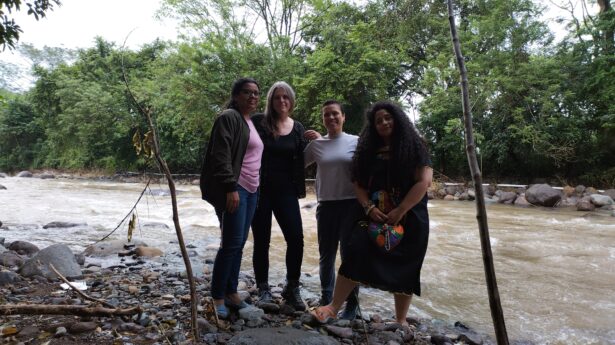The Unitarian Universalist Service Committee advances human rights through grassroots collaborations.
The Onsite Wastewater Design Challenge
November 1, 2016
The Alabama Center for Rural Enterprise (ACRE) – a UUSC partner organization – was founded in 2002 “to address the economic development of one of the poorest counties in America.”
Central Alabama, in particular, Lowndes County where ACRE was founded, sits on “black belt” prairie soils that don’t allow for traditional individual septic systems to function effectively and leave many residents wading in raw sewage, exposing them to a host of public health threats not often found in the United States.
ACRE seeks to “ensure equitable access to safe, affordable, and adequate water and sanitation for all communities,” and have organized a “charrette” in Lowndes County to provide the opportunity to develop a technological solution that will allow them to get closer to achieving their mission.
The Onsite Wastewater Design Challenge is a gathering of civil engineers; local, state, and federal environmental agency representatives; community leaders; residents; and the press. “It’s a community-led effort to solve a real problem, bringing together experts from all over the country to focus on the problem, to learn from affected residents and to review and vet possible solutions,” says Salote Soqo, Senior Program Leader for Environmental Justice and Climate Action at UUSC. “The post-challenge goal is that the most feasible solutions will be the subject of a 2-3 year demonstration project, after which the most successful system will be identified and implemented with possible funding from the federal government and other sources.”
“When it comes to environmental and climate justice, we have to practice and implement solutions on the ground in order to advance human rights. Recognizing and adopting human rights laws are usually what enable this. But in the absence of these laws and the lack of political will to make these changes, communities like Lowndes County are stepping up to show what their rights to sanitation look like in practice, which is a powerful model for other communities around the nation”
Why does a human rights organization like UUSC support a project like the Challenge? According to Soqo, human rights challenges need practical solutions. “When it comes to environmental and climate justice, we have to practice and implement solutions on the ground in order to advance human rights. Recognizing and adopting human rights laws are usually what enable this. But in the absence of these laws and the lack of political will to make these changes, communities like Lowndes County are stepping up to show what their rights to sanitation look like in practice, which is a powerful model for other communities around the nation.”
ACRE’s founder and executive director Catherine Coleman Flowers agrees. “The Wastewater Design Challenge can be an effective change agent for low-income rural communities. A sustainable water future for clean and safe drinking water in the United States includes a future where water injustices no longer exist.”
Learn more about ACRE by visiting its website. UUSC will continue to report on the results of the Challenge and the progress of the design solutions to be tested in Lowndes County in the coming years.

